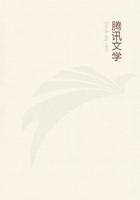But, if it was possible from the legal standpoint to draw a hard and fast line between Kent on one side, Sussex or Essex on the other, it is quite impossible, from the historian's point of view, to grant that social condition has developed in adjoining places out of entirely different elements, without gradations and intermediate shades. Is there the slightest doubt that the generalising jurisprudence of the thirteenth century went much too far in one direction, the generalising scribes of the eleventh century having gone too far in the other? Domesday does not recognise any substantial difference between the state of Kent and that of Sussex; the courts of the thirteenth century admitted a complete diversity of custom, and neither one nor the other extreme can be taken as a true description of reality. The importance of the custom of Kent can hardly be overrated: it shows conclusively what a mistake it would be to accept without criticism the usual generalising statement as to the different currents of social life in mediaeval England. It will hardly be doubted moreover, that the Kentish case proves that elements of freedom bequeathed by history but ignored by the Domesday Survey come to the fore in consequence of certain facts which remain more or less hidden from view and get recognised and protected in spite of feudalism. If so, can the silence of Domesday or the absence of legal protection in the thirteenth century stand as sufficient proof against the admission of freedom as an important constitutive element in the historical process leading to feudalism? Is it not more natural to infer that outside Kent there were kindred elements of freedom, kindred remnants of a free social order which never got adequate recognition in the Domesday terminology or left definite traces in the practice of the Royal courts?
One more subject remains to be touched upon, and it may be approached safely now that we have reviewed the several social groups on the border between freeholders and villains. It is this -- to what extent can the existence of a class of freeholders among the peasantry of feudal England be maintained? It has been made a test question in the controversy between the supporters of the free and those of the servile community, and it would seem, at first sight, on good ground. Stress has been laid on the fact, that such communities as are mentioned in Domesday and described in later documents are (if we set aside the Danish counties)almost entirely peopled by villains, that free tenants increase in number through the agency of commutation and grants of demesne land, whereas they are extremely few immediately after Domesday, and that in this way there can be no talk of free village communities this side of the Conquest.(77*) This view of the case may be considered as holding the field at the present moment: its chief argument has been briefly summarised by the sentence-the villains of Domesday are not the predecessors in title of later freeholders.(78*) I cannot help thinking that a good deal has to be modified in this estimate of the evidence. Without touching the subject in all its bearings, I may say at once that I do not see sufficient reason to follow the testimony of Domesday very closely as to names of classes. If we find in a place many free tenants mentioned in the Hundred Roll, and none but villains in Domesday, it would be wrong to infer that there were none but villains in the later sense at the time of the Survey, or that all the free tenements of the Hundred Rolls were of later creation than the Conquest. It would be especially dangerous to draw such an inference in a case where the freeholders of the thirteenth century are possessed of virgates, half-virgates, etc., and not of irregular plots of land. Such cases may possibly be explained by sweeping commutation, which emancipated the entire village at one stroke, instead of making way for the freehold by the gradual enfranchisement of plot after plot. But it is not likely that all the many instances can be referred to such sweeping emancipation. In the light of Kentish evidence, of free and villain socage, it is at least probable that the thirteenth-century freeholders were originally customary freeholders entered as villains in Domesday, and rising to freedom again in spite of the influence of feudalism. Such an assumption, even if only possible and hypothetical, would open the way for further proof and investigation on the lines of a decline of free village communities, instead of imposing a peremptory termination of the whole inquiry for the period after the Conquest. If the Domesday villains are in no case predecessors in title of freeholders, this fact would go a long way to establish the serfdom of the village community for all the period after the Conquest, and we should have to rely only on earlier evidence to show anything else. Our case would be a hard one, because the earlier evidence is scanty, scattered, obscure, and one-sided, But if the villains of Domesday may be taken to include customary freeholders, then we may try to illustrate our conceptions of the early free village by traits drawn from the life of the later period, NOTES:
1. Rot. Hundred. ii. 528, b: 'Et modo omnia illa arrentata sunt et dant per annum 14 sol. 8 d.'
2. Exch. Q. R. Min. Acc., Bundle 510, No. 13: 'Et solebant facere servicia consueta, sed per voluntatem et ad placitum domini extenta sunt in denariis., Cf Abingdon Cartulary, ii. 303. Rot.
Hundred. ii. 453, a: 'Omnes isti prenominati nomine villenagii sunt ad voluntatem domini de operibus eorundem.' Cf Ibid. 407, b.
3. Worcester Cartulary (Camden Series), 54, b: 'Haec villa tradita est ab antiquo villanis ad firmam, ad placitum cum omnibus ad nos pertinentibus.' Cf Gloucester Cartulary, iii. 37.














